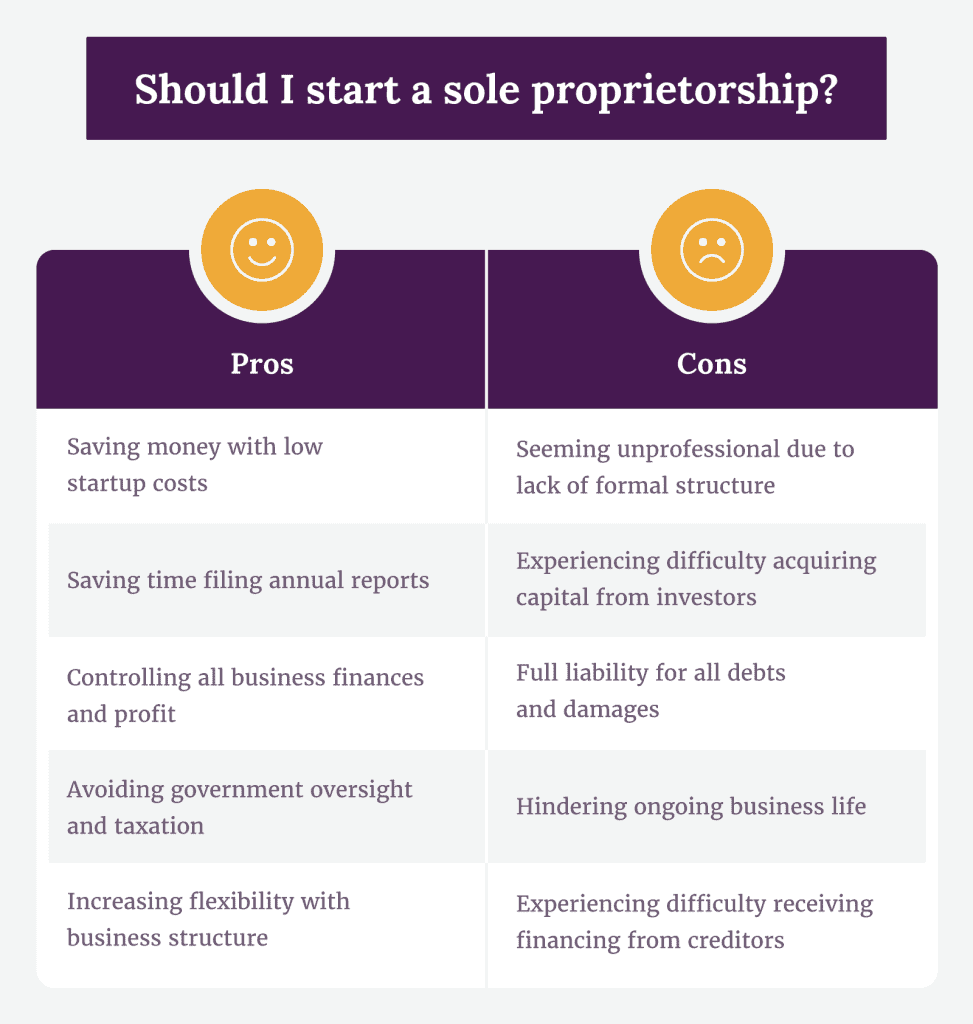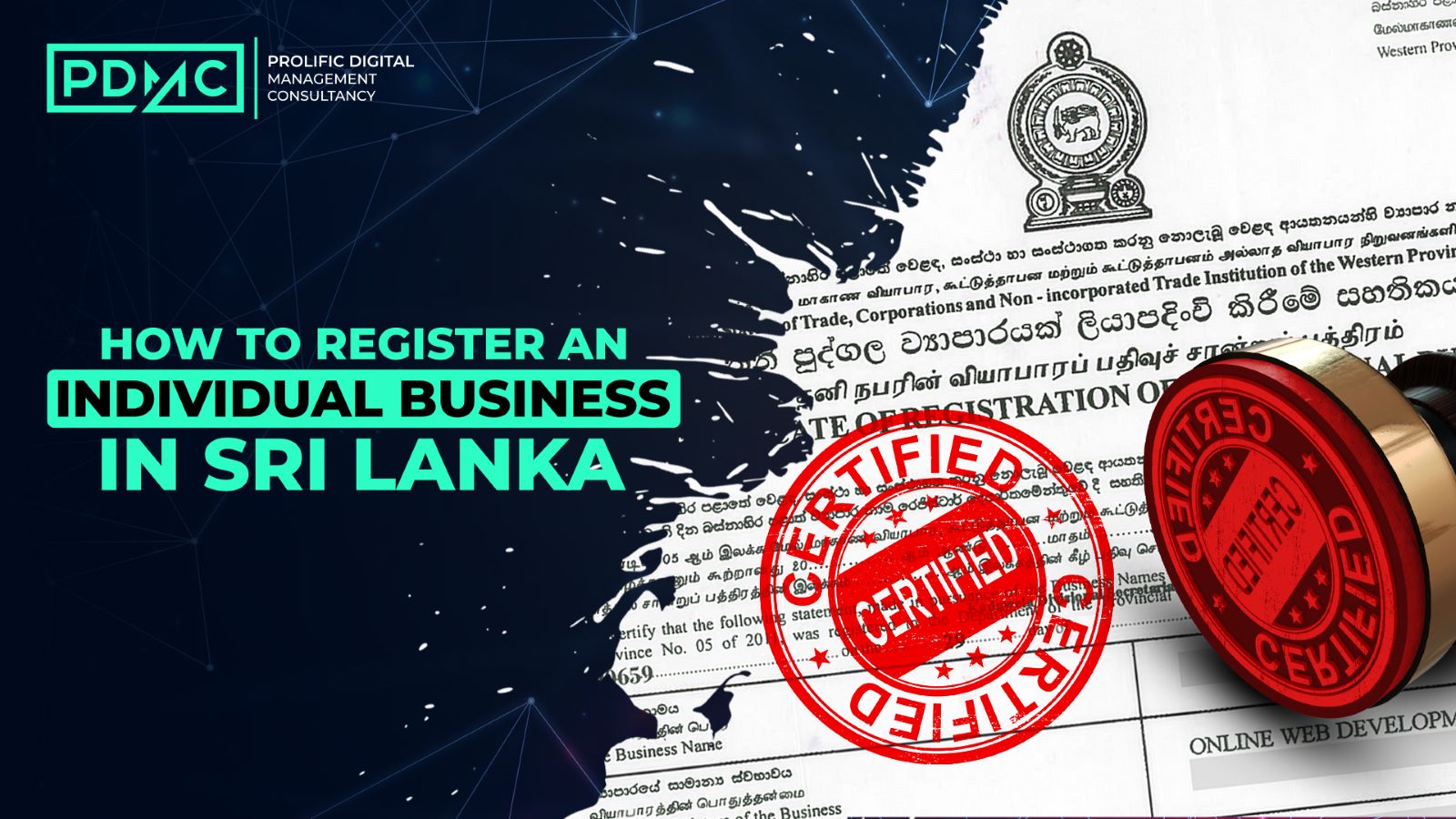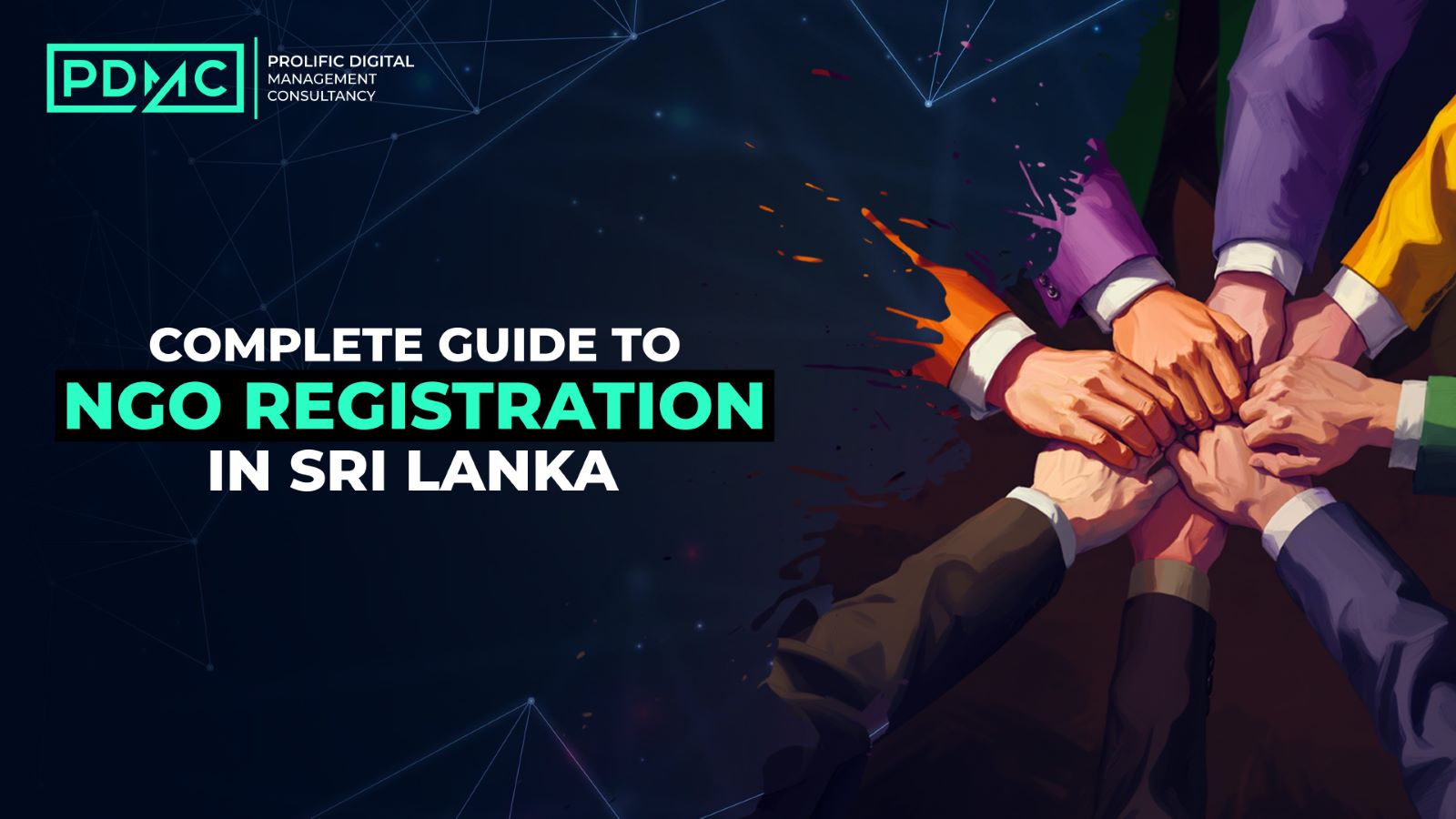Blog
How to Register an Individual Business in Sri Lanka: A Complete Guide
5 Aug 2024
Entrepreneurship in Sri Lanka can be a thrilling experience, and if you are planning to start your business alone, the easiest form of business to start is Sole Proprietorship. This type of business structure is suitable for new business people who wish to start small businesses with the hope of expanding.
Why do people opt for a Sole Proprietorship?
Since you are a Sole Proprietor, all the decisions made within the business will be made by you alone without consulting other people, not even partners or a board of directors. This independence is crucial in the current volatile markets as it enables organizations to make decisions quickly and adapt to changes.
Also, tax filing becomes less of a problem because the income generated from the business is considered your personal income thus making it easier when it is time to file taxes.
However, with the simplicity and advantages, there are also great responsibilities. A Sole Proprietorship exposes you to unlimited liability, which implies that business debts or legal cases can impact your personal property. This risk underlines the importance of planning and management in the process.
The second difficulty is the issue of capital. Since the funding options for Sole Proprietors are often limited to personal savings or loans, it can be difficult to expand the business. Banks and investors consider sole trader businesses as high risk and may not be willing to give credit.

Image, via simplifyllc.com
Knowing these advantages and disadvantages will assist you in making the right decision on whether this is the right track for you as an entrepreneur. In the next steps, we will explain to you all the stages of registration and help you create your Sole Proprietorship without any confusion. This setup not only puts one in good standing in the competitive market but also lays a good legal foundation for the business in Sri Lanka.
Detailed Registration Process
The procedure of registering a sole trader business in Sri Lanka is a sequential one and must be done correctly. This section provides a detailed procedure on how to register your business and the legal requirements that you have to meet.
Step 1: Obtain Application Form
The first step in registering your individual business is to obtain the application form. Visit the respective provincial council based on your area to get the forms.
Two forms will be provided by them:
A form to register your business name.
A form to request a report from Grama Niladhari (GN)
Step 2: Complete the Form and Gather Documents
Once you have the application forms, fill them in a very formal way. Make sure that all the documents that are needed are collected so that there will not be any hindrance in the process.
The essential documents include:
National Identity Card (NIC) Copy: You need to provide a valid NIC to verify your identity.
Business premises ownership documents: Depending on the location of your business, provide:
Deed (if you own the premises)
Rent or Lease Agreement (if the premises are rented)
Consent Letter (if the business is to be conducted on a premise owned by another party, and to prove that they allow the business to be conducted there)
Assessment Notice (Varipanam) for address verification and proof of ownership of the property.
Affidavit Confirming Initial Capital: This document should also show the amount of capital you wish to use in starting your business.
Step 3: Additional Documents (if applicable)
There may be other documents that may be needed depending on the kind of business that is being carried out.
For instance:
Vocational Businesses: Certifications from relevant institutions.
Tobacco-Related Business: Recommendations from the Excise Department.
Pharmacy: Certification from the Sri Lanka Medical Council.
Gems and Jewellery: Recommendation from the Gem and Jewellery Authority.
Gas Station: Recommendations from the Central Environment Authority and the Ceylon Petroleum Corporation.
Printing Business: Recommendation from the Department of National Archives.
Rooms, Guest Houses, Spas: Reports from local police and the Divisional Secretariat.
Food-Related Business: Recommendation from the Public Health Inspector.
Agency or Distribution Business: Certification from the relevant agency.
Consultancy Services: Relevant consultancy certificates.
These additional documents ensure compliance with sector-specific regulations and are crucial for the legal operation of your business.
Step 4: Submission of Application
Submit the filled application form, certified report from Grama Niladhari, and all other required documents to the Divisional Secretary. Ensure that all the documents are accurate and complete to avoid any form of delay. There is also a registration fee that differs from one Provincial Council to another. Ensure that this fee is paid at the time of submission of the application.
Step 5: Certificate of Registration
After the application and documents have been examined and accepted, the Divisional Secretary will provide the individual business registration certificate. This certificate is an official legal document that will act as evidence that your business is legally recognized. This certificate must be displayed at your business premises and it is the law to do so.
Key Considerations and Compliance
The business name must be registered within 14 days of the commencement of business as required by local laws. Also, it is vital to ensure that all the documents are correct and certified to avoid any legal complications. Based on the type of business, there may be certain legal requirements that need to be followed, and recommendations from the authorities may be needed.
Conclusion
It can be said that the registration of a Sole Proprietorship in Sri Lanka can help many aspiring businessmen and women access a wide range of opportunities.
Although the process is a complex one that involves several important steps, including getting the right forms, completing them, and submitting them with the necessary documentation, it is a process that is easily doable and one that is worth the effort. When you retain full control over decisions and keep the tax processes as uncomplicated as possible, you are ready to respond to the market shifts and seize the opportunities.
As a result, the registration process and business functioning depend on careful preparation and knowledge of the legal environment. Equipped with this guide, you are now prepared to start your business, register your business and start your new journey of being a boss and owning a business in Sri Lanka.





